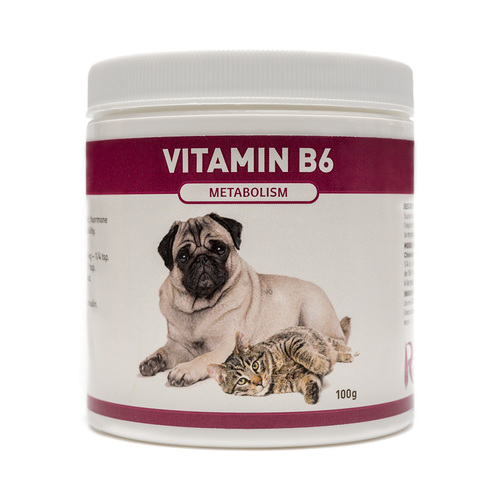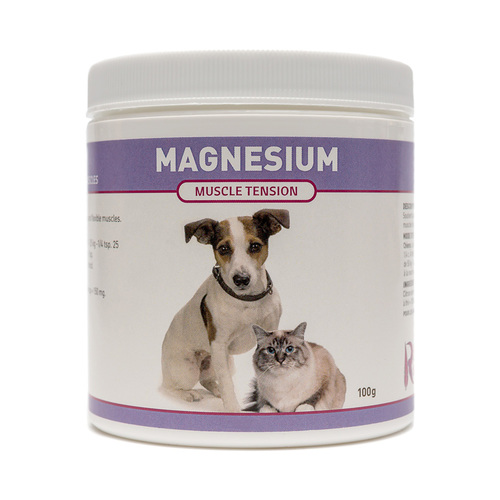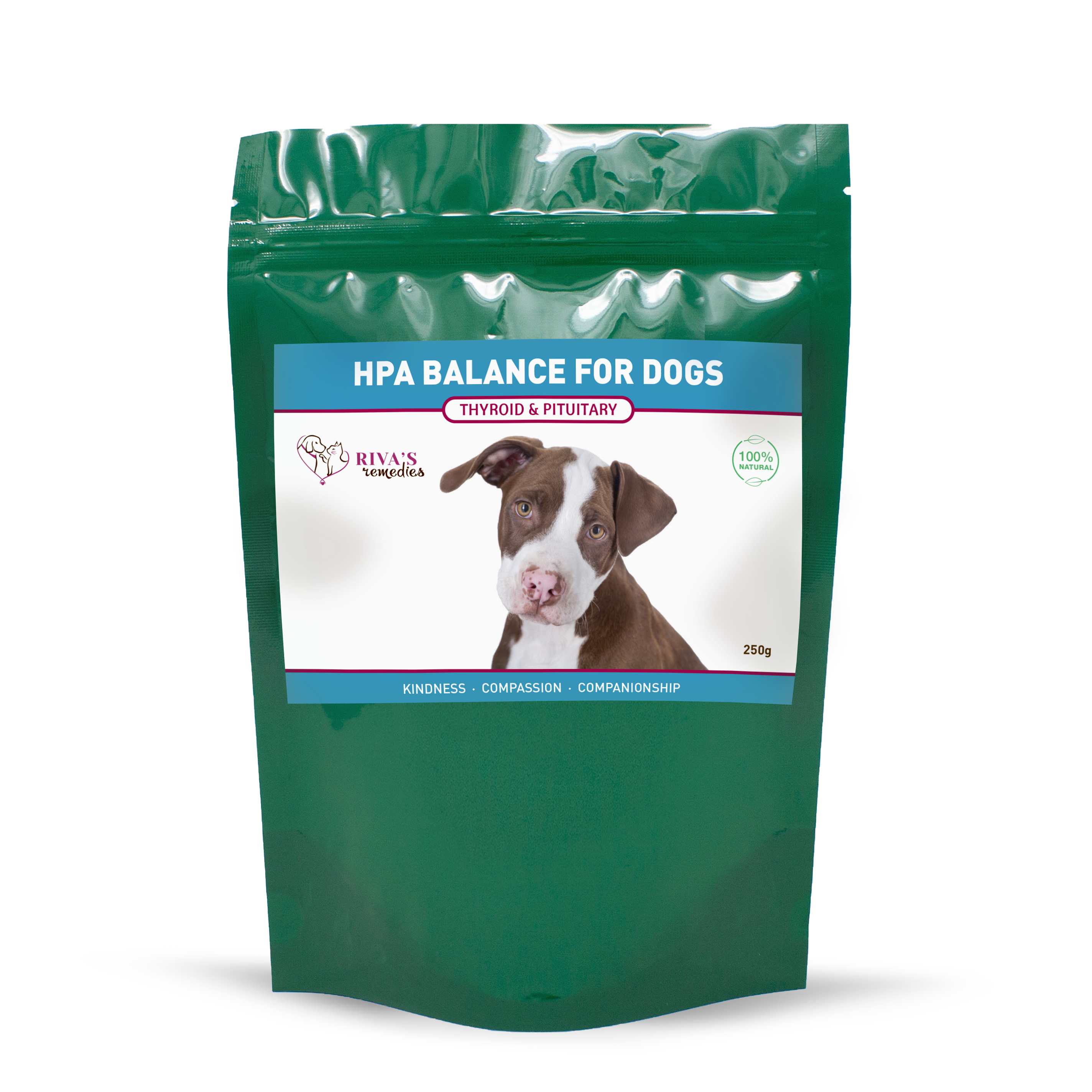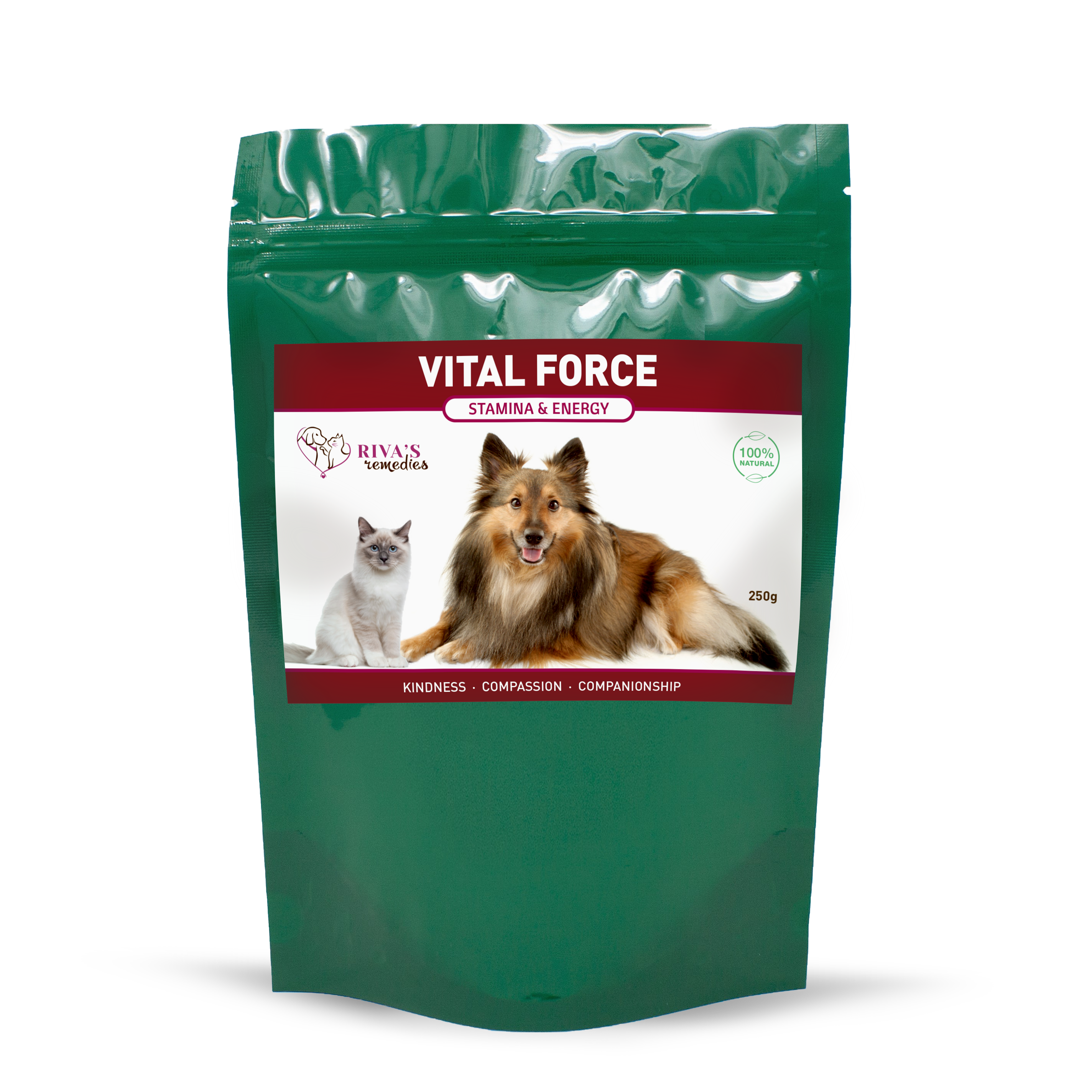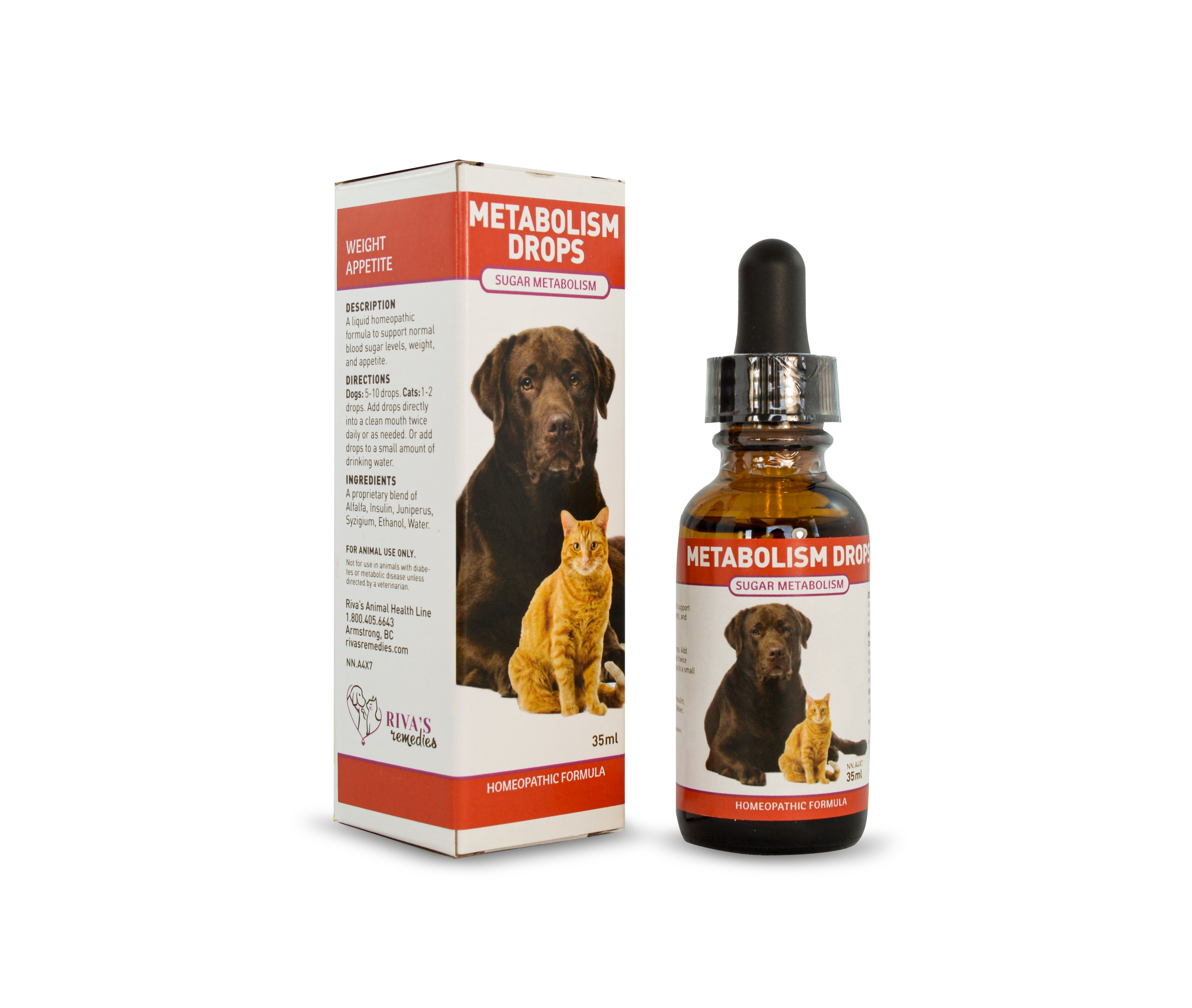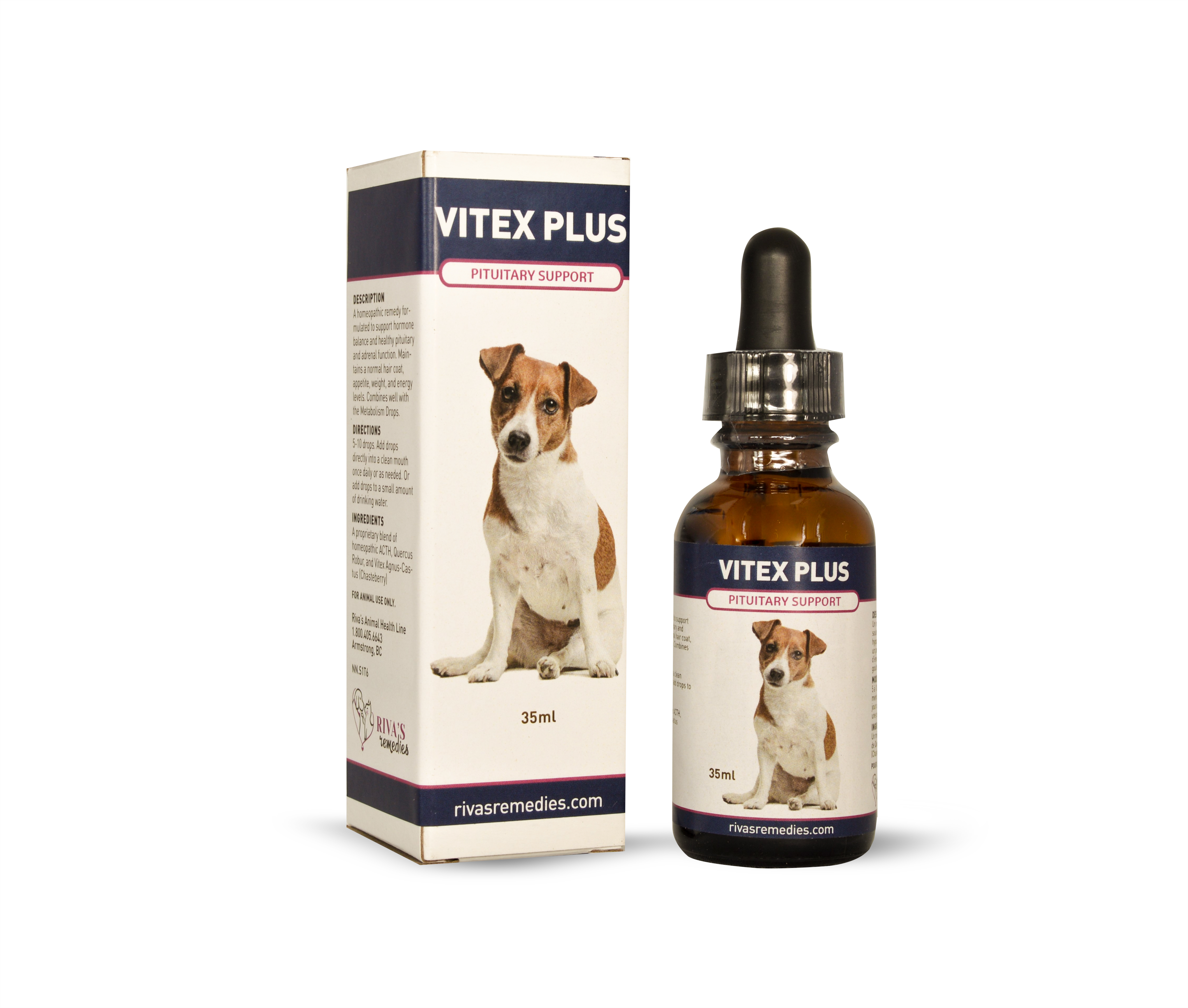What Is Cushing’s Disease?
Cushing’s disease, also referred to as Hyperadrenocorticism, is a chronic hormonal condition which is affecting dogs of all breeds. It is, unfortunately, becoming all too common in dogs, especially in those dogs older than six years of age.
Cushing’s is a multi-factorial health condition so we really need to fully understand how it is caused in the first place so that we can more effectively correct the underlying cause(s).
Similar to humans, diseases don’t just happen to dogs; they are created by the domestic environment. And Cushing’s disease is no different. It can be considered a testament to the stressful lifestyles that many of our dogs live, as well as the inappropriate diets that most of our dogs are eating. The onset of Cushing’s disease is not sudden; it’s a slow development of hormonal changes initiated by dietary problems, weight gain, sugar imbalances, and/or stress.
Diseases don’t just happen to dogs; they are created by the domestic environment
Symptoms of Cushing's Disease

Cushing’s disease can be very difficult to diagnose especially in its early stages, and there is no single test to confirm the condition. In addition, because Cushing’s affects the function of all the other endocrine organs, signs and symptoms can vary. Most commonly, dogs will experience hair loss on the body (no itching), pot bellies caused by fat accumulation in the abdomen, an increase in hunger, excessive drinking with more urination, and poor immunity. Poor immunity can result in a susceptibility to bacterial, viral and yeast infections (e.g. bladder or ears), but sometimes the infections are not always evident and are, therefore, left undiagnosed. The hair coat may be dry and dull with dark or black skin. More advanced cases will present with fatigue, weakness, panting, loss of muscle mass, and an enlarged liver or adrenal glands
What Causes Cushing’s Disease?
In sharp contrast to the medical perspective, the holistic view of the true and underlying cause of Cushing’s disease is due to metabolic problems, and is the end result of weight gain, obesity, Insulin Resistance, or diabetes. Cushing’s disease can also be caused by high doses or the long-term use of steroid medications which interfere with normal adrenal function.
From a purely physiological perspective, Cushing’s disease is caused by the over-production of cortisol by the adrenal glands. However, in the case of canine Cushing’s disease, this is caused by an over-active pituitary gland (located at the base of the brain) that is producing excessive adrenocorticotropic (ACTH) hormone, which in turn, stimulates the adrenal glands to produce more cortisol. This is known as pituitary-dependent Cushing’s. On occasion, a dog will be found to have a tumour on the adrenal gland which also results in high cortisol levels – this condition is known as adrenal-dependent Cushing’s.
But the pituitary gland also produces specific hormones in response to brain signals from the hypothalamus, another endocrine gland which is located just above the pituitary. The hypothalamus responds to a variety of internal and external signals to maintain homeostasis (balance) by stimulating the pituitary to produce important hormones. And research has shown that in Cushing’s the pathways between the hypothalamus and the pituitary are disrupted because of a dopamine deficiency. Dopamine is a “feel-good” neurotransmitter that sends important signals from the brain to the body. Low levels of dopamine can cause lethargy, muscle stiffness, fatigue, apathy, and depression; all symptoms that are common with Cushing’s disease.
And dopamine levels are affected by lifestyle factors such as quality of sleep, excess weight or obesity, lack of exercise, stress levels, and a probiotic deficiency affecting the balance of the intestinal microbiome.
Therefore, the real issue with Cushing’s is not primarily a pituitary gland dysfunction, nor an adrenal gland dysfunction, but rather, a cascade of unbalanced hormones as caused by Insulin Resistance, weight gain, diabetes, diet, and stress. The continuing high insulin production by the pancreas in these conditions also leads to an over-production of cortisol by the adrenals because cortisol plays a role in carbohydrate metabolism as well as blood sugar regulation.
Thus, any enlargements of the pituitary gland or growths on the adrenal glands should not be considered the true and underlying cause but rather a result of the lifestyle factors which depress dopamine levels which then cause prolonged stimulation of these glands to enlarge so they can produce more hormones. Bigger is better, right?
Can Stress Alone Cause Cushing’s Disease?
Yes, it can. Stress causes increased levels of cortisol, erratic insulin levels, higher than normal production of adrenaline, low dopamine levels, and pituitary and thyroid dysfunction. Stress can be either physical (pain, inflammation, blood sugar) or emotional. The hypothalamus in the brain relays the information from the nervous system to the pituitary via the corticotropic releasing hormone (CRT).
Domestic dogs frequently experience high levels of stress with poor diets, loneliness, isolation, lack of exercise, undiagnosed illness, and unhealthy emotional environments in the household.
Aside from current stressors that dogs may be experiencing, I have also worked with many dogs who appeared healthy to their owners but whose nervous systems were in shock due to a past stressful episode. These dogs then suffered hormone imbalances due to both the initial acute stress and its residual effects. These hormone imbalances therefore don’t usually recover until the stress or past trauma is brought to our awareness for healing.
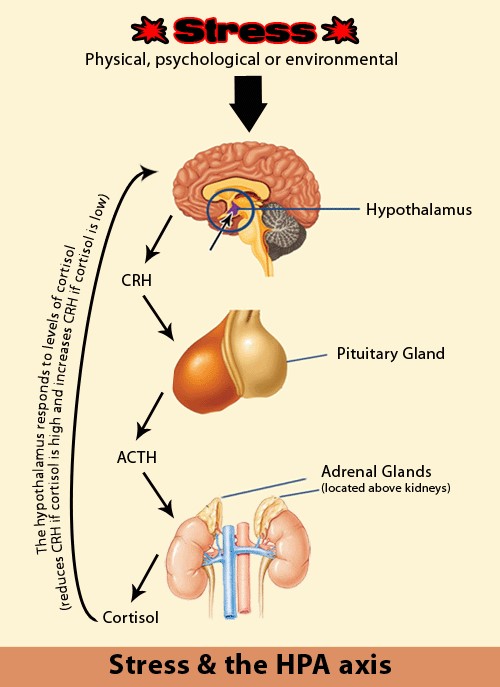
The Hormone Loop
Therefore, high insulin levels or stress result in lower dopamine levels and elevated cortisol production, which result in higher insulin levels. High insulin and cortisol, along with low dopamine alert the hypothalamus which signals the pituitary to produce more ACTH, which then causes a higher output of cortisol – and so the feedback cycle continues. High insulin and cortisol levels also interfere with thyroid hormones, which is another complication for dogs.
Conventional Treatment
Current medication used for pituitary-dependent Cushing’s disease is extremely toxic, carries serious side effects, and does not address the underlying cause. Nor does it increase life expectancy; dogs live the same amount of time with or without the medications. These drugs act as a type of chemotherapy, which erode the cortisol-producing cells of the adrenal cortex. This destruction of organs and their precious hormones can result in weakness, lack of coordination, loss of appetite, vomiting, diarrhea, fatigue and depression. And if too much adrenal tissue is killed off, the dog must then be given steroid medication, an excess of which can cause Cushing’s. Okay, now I’m confused!
Medications do not increase life expectancy
As we can now understand, the safest and most effective treatment in the holistic health model of canine Cushing’s is through dietary changes, exercise, supplements, and stress relief.
The Natural Health Program
Diet
- Overweight dogs need to lose weight. Dogs must be exercised on a regular basis and should not be laying down all day.
- Eliminate all sugars, sugar treats, wheat, corn gluten, dairy products, and soy products.
- Eliminate all red meat including beef, bison, venison, and pork.
- Remove excess dietary fats as well as unhealthy oils. This includes canola oil, soya oil, some fish and vegetable oils. While small amounts of essential fatty acids are necessary for good health, excess or unhealthy oils produce excess cortisol, which causes insulin reactions.
- Add more seeds, such as flax, chia and hemp, to the diet to provide a natural source of fibre and essential fatty acids.
- Increase dietary fibre to slow down the Glycemic Index, i.e., sugar absorption into the blood. Whole cooked grains (if tolerated), seeds, and all vegetables are an excellent source of fibre.
- A grain-free diet is indicated if the dog has been eating grains as staples, particularly wheat, corn gluten, white rice, or other poor quality grains.
- If the dog is already on a grain-free diet reduce the meat protein and add healthy whole grains, which will increase the fibre and slow down sugar absorption. Many dogs gain weight on too much meat.
- Eat organic!
Important Vitamins & Minerals
| Cushing's Disease (PPID) Bundle Special: HPA Balance herbal blend –Promotes a healthy endocrine system including the adrenal, thyroid, and pituitary glands. Maintains reproductive hormone balance. Vitamin B6 Nutrition support for hormone production, as well as thyroid and pituitary function. Supports mental health, energy levels, and weight loss. Vitex Plus homeopathic remedy – Maintains metabolic hormone balance, immunity, and energy levels. Supports normal pituitary and adrenal function. |
|
Promotes normal insulin production and healthy pituitary, thyroid, and adrenal function. Encourages weight loss. |
|
|
Important mineral for carbohydrate metabolism and stress. Natural relaxant for calming nervous dogs. Promotes normal energy levels and muscle function. |
|
|
Promotes the healthy function and balance of all endocrine glands including the adrenals, pituitary and thyroid). It supports a healthy stress response and is a natural Adaptogen. |
|
|
Maintains energy and vitality, supports normal blood sugar levels, and provides nutrition for the nervous system. |
|
|
Promotes healthy blood sugar levels, supports weight loss, and helps control excessive appetites. |
|
|
Vitex Plus, homeopathic A homeopathic remedy formulated to support hormone balance and healthy pituitary and adrenal function. Maintains a normal hair coat, appetite, weight, and energy levels. |
* Please note: We provide a thorough selection of natural products to help you choose the ones that are best suited for your dog. If you need additional assistance in making the right choice, feel free to reach out to us.
NOTES
1) Reduce stress. If necessary and possible remove the dog from an unhealthy emotional environment. Address any previous traumas.
2) Discontinue all glucosamine and chondroitin products. These nutraceuticals are concentrated sugars which block the beta cells of the pancreas from producing adequate levels of insulin. Glucosamine is, therefore, contraindicated in all cases of insulin resistance, weight gain, diabetes, or metabolic disorders such as Cushing’s.
Healthy Dogs
All dogs respond to healthy changes in diet, an increase in exercise, weight loss, and a reduction of stress levels. This not only results in a major improvement to the lifestyles of our pets but helps to prevent diseases of all kinds, including Cushing’s disease, and can even reverse many chronic conditions.
In this way, our beloved pets can re-new their lives and experience more happiness, joy, and longevity as they surely deserve.
For more information and
extensive information on diet, nutrition, and their relationship to disease
read
Healing Dogs Their Way.





